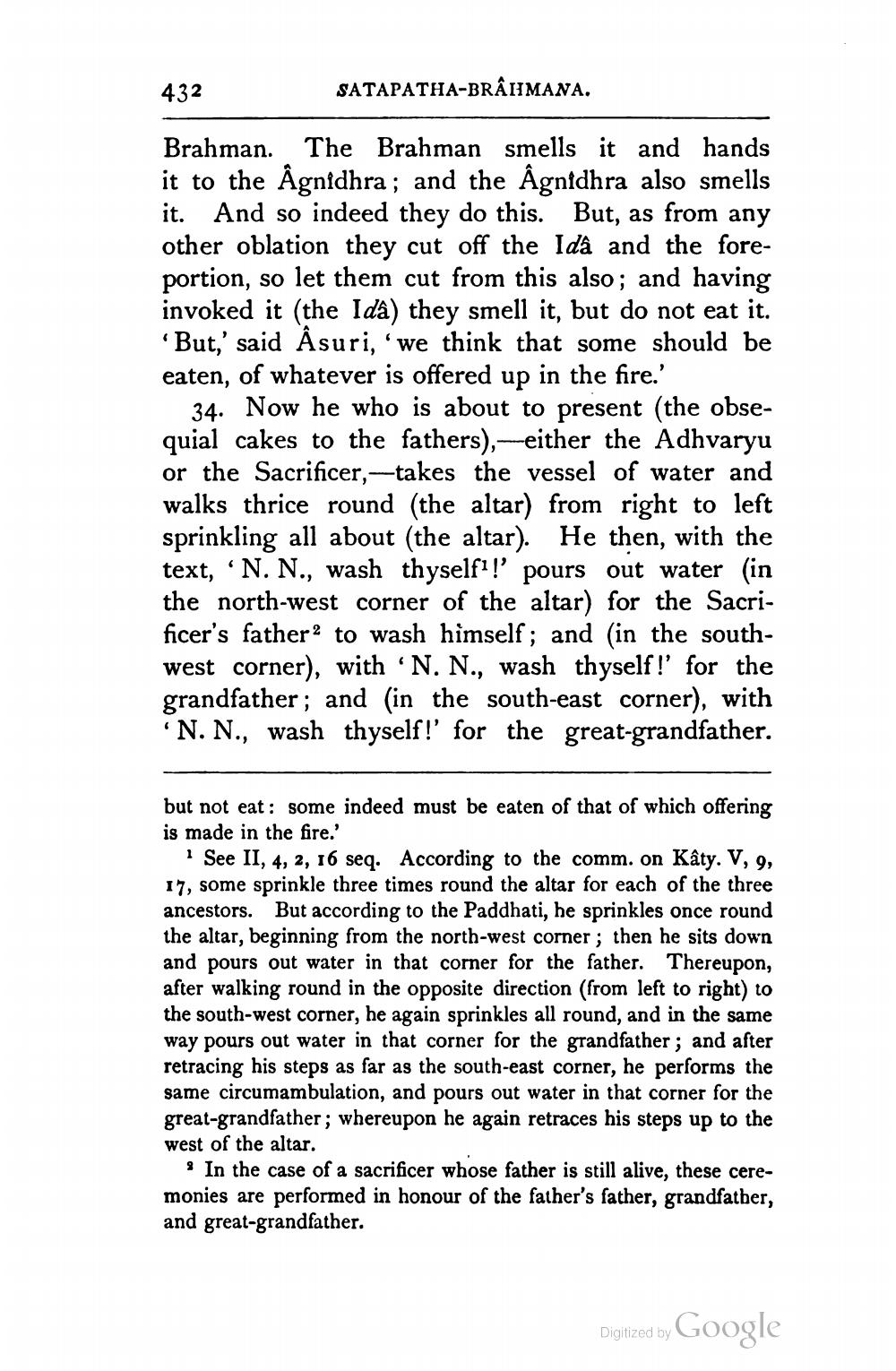________________
432
SATAPATHA-BRAHMANA.
Brahman. The Brahman smells it and hands it to the Agnidhra ; and the Agnidhra also smells it. And so indeed they do this. But, as from any other oblation they cut off the Idâ and the foreportion, so let them cut from this also; and having invoked it (the Ida) they smell it, but do not eat it.
But,' said Asuri,' we think that some should be eaten, of whatever is offered up in the fire.'
34. Now he who is about to present (the obsequial cakes to the fathers),-- either the Adhvaryu or the Sacrificer,--takes the vessel of water and walks thrice round (the altar) from right to left sprinkling all about (the altar). He then, with the text, ‘N. N., wash thyself?!' pours out water (in the north-west corner of the altar) for the Sacrificer's father2 to wash himself; and (in the southwest corner), with 'N. N., wash thyself!' for the grandfather; and (in the south-east corner), with 'N. N., wash thyself!' for the great-grandfather.
-
but not eat: some indeed must be eaten of that of which offering is made in the fire.'
See II, 4, 2, 16 seq. According to the comm. on Kâty. V, 9, 17, some sprinkle three times round the altar for each of the three ancestors. But according to the Paddhati, he sprinkles once round the altar, beginning from the north-west corner; then he sits down and pours out water in that corner for the father. Thereupon, after walking round in the opposite direction (from left to right) to the south-west corner, he again sprinkles all round, and in the same way pours out water in that corner for the grandfather; and after retracing his steps as far as the south-east corner, he performs the same circumambulation, and pours out water in that corner for the great-grandfather; whereupon he again retraces his steps up to the west of the altar.
. In the case of a sacrificer whose father is still alive, these ceremonies are performed in honour of the father's father, grandfather, and great-grandfather.
Digitized by Google




